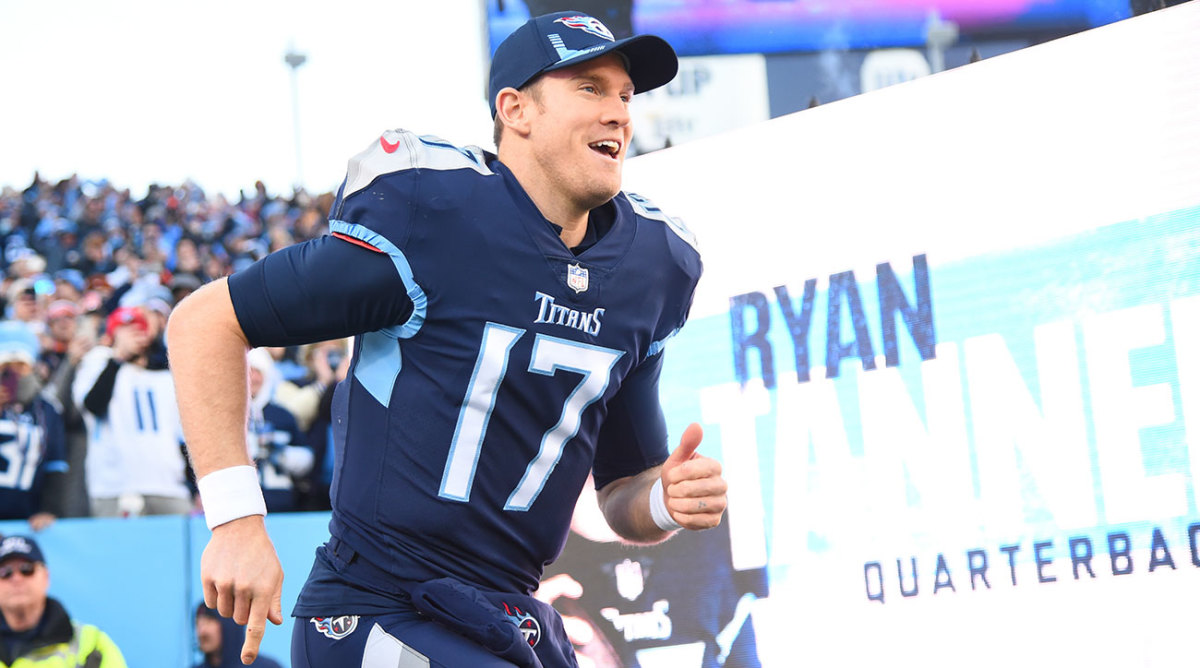Ryan Tannehill’s Comments About Malik Willis Are Only Human
Anybody who has asked Joe Montana about Steve Young in the last 30 years got the same answer: Montana did not have a personal problem with Young. He just didn’t want to cede an inch of territory to him.
That was the dynamic of the 49ers of the 1980s. It was similar to the dynamic between Brett Favre and Aaron Rodgers with the Packers in the 2000s; between Tom Brady and Jimmy Garoppolo with the Patriots; and, recently, between Rodgers and Jordan Love. So when Ryan Tannehill said this week that it was not his job to mentor rookie Malik Willis, he really doesn’t need talking heads or columnists to back him up. Some of the best quarterbacks in history know he was right.

The only difference with Tannehill is that he is less accomplished than those aforementioned Hall of Famers—which means, of course, that more fans want the soon-to-be-34-year-old replaced. They have every right to feel that way and no reason to expect Tannehill to feel the same. Of course he wants to keep his job. Tannehill’s comments can easily be twisted and portrayed as selfish, but they are just human.
Tannehill has exactly the right attitude—for himself, for the Titans and even, in a way, for Willis.
The Titans will pay Tannehill $29 million this year. I don’t know the going rate for a good mentor these days, but that seems high. Since Willis is, by almost every account, talented but raw, Tannehill is almost certainly going to be Tennessee’s starting quarterback this fall. Who wants a starting quarterback who is thinking about becoming a backup?
Life as an NFL quarterback moves pretty fast; if you stop and look around once in a while, you’ll get physically destroyed. The only way to succeed is to think quickly, react confidently and never, ever, ever think, “Gee, what if I didn’t do this?” Plenty of quarterbacks with starter-level talent ended up on a bench or out of the league because they realized that looking downfield while angry 300-pound men charge toward them is not the healthiest way to make a living.
Tannehill played terribly in the Titans’ divisional-round loss to the Bengals, and it was a disturbing strain of terrible. He played like he had lost belief in himself, throwing three interceptions and leading his team to just 16 points. But Tannehill has also played some very good football for the Titans, who were the AFC’s No. 1 seed last year. They need him to do it again to have a chance of making a playoff run this year. That means Tannehill has to believe in himself. He might not be the Titans’ starter in two years, but he has to think he will be.
Willis needs to see that, too. He can learn more about the position he plays and the league he is joining by watching Tannehill compete than by being “mentored” by him. If Tannehill makes it hard for Willis to take his job, then that’s good for Willis. It should make him work harder and steel him for what is ahead.
Michigan coach Jim Harbaugh likes to ask college players what it takes to play in the NFL. His answer: “You have to take another man’s job. And those men like those jobs.” It’s a cold business, and the people who understand that are the ones who thrive. Brady was a sixth-round pick, so nobody thought it was Drew Bledsoe’s job to mentor him. But when Brady arrived in New England, he did so with a firm expectation that he would earn the starting job. If he had shown up looking for a mentor, he wouldn’t be the Tom Brady we have watched for two decades.
There will probably be some tense moments between Tannehill and Willis. There should be. Willis wants what Tannehill has, and Tannehill doesn’t want to give it up. Tannehill is not being paid to be a mentor any more than Willis is being paid to be a mentee. They owe it to the Titans to be the best quarterbacks they can be—and to be good teammates, too. Asking them to do more is really just asking them to be less.
More NFL Coverage:
• Investigation: Inside the Tanking Allgations Against the Browns
• The NFL Has an Imagination Problem at QB
• Mailbag: Who’s the Top Pick of the 2023 Draft?
• Inside Howie Roseman’s Process of Swapping Picks
